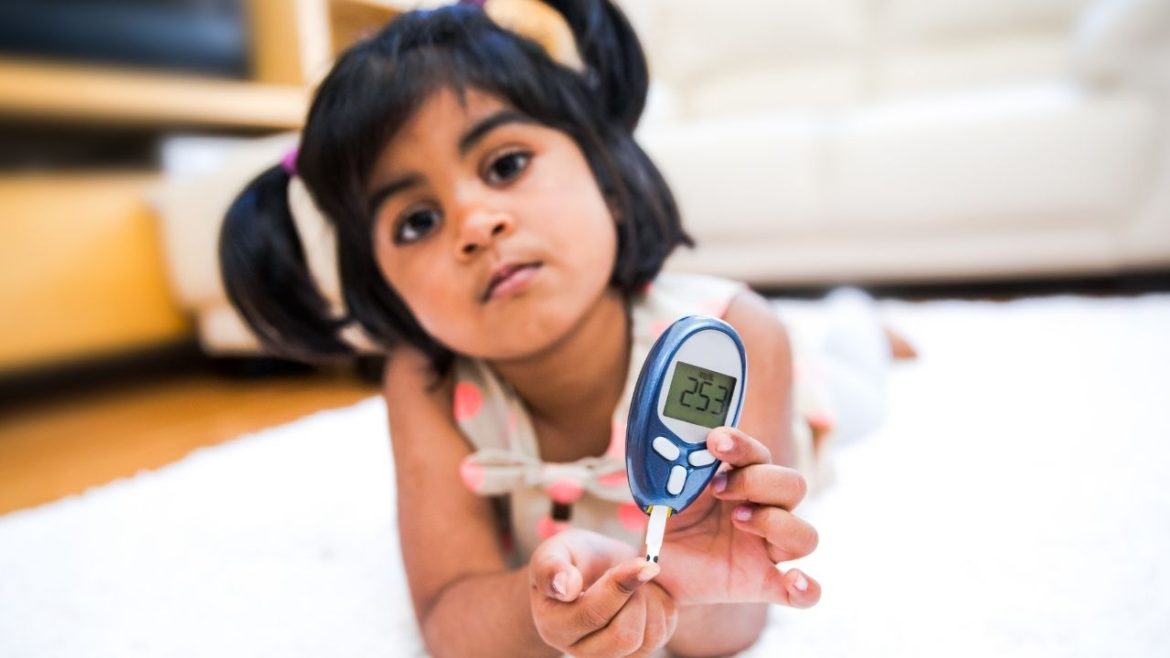
Diabetes Type 1 – Symptoms, Causes and Treatment
For people who suffer from type 1 diabetes, their body doesn’t produce insulin while people with type 2 diabetes don’t respond to insulin as well as they should and later in the disease often don’t make enough insulin.
In this post, we will focus on Diabetes Type 1.
Role of insulin in your body:
Insulin is the hormone produced by the pancreas which helps to take up the glucose present in the food and use it as a source of energy. It helps regulate the blood sugar level in the body. The carbohydrates present in the food you intake break down into glucose, which enters into your bloodstream. Here the pancreas produces insulin as a response that allows the glucose to enter the body’s cell and provide energy. When the cells have enough glucose, the liver, and muscle tissue store the extra glucose in the form of glycogen. This breaks down into blood sugar and the energy is released when you need them, such as while eating or exercising.
What is Diabetes type 1?
Type 1 diabetes is a chronic condition, where the immune system of a person destroys the insulin-making cells in the pancreas. People suffering from diabetes type 1, are unable to process glucose due to the lack of insulin. As too much glucose is left circulating in your blood, this leads to short-term and long-term, high blood sugar levels.
Symptoms of diabetes type 1
The signs and symptoms of diabetes type 1 are often subtle, but they can become severe. The symptoms include:
- Extreme thirst
- Increased hunger even after eating
- Increased frequency of urination
- Blurred vision
- Fatigue
- Unexplained weight loss in a short time even when you are feeling hungry
- Frequent changes of mood
- Urinary tract and skin infections
A person might also develop ketoacidosis, a complication of diabetes. Signs and symptoms of this condition include:
- Rapid breathing
- Dry mouth and skin
- Loss of consciousness
- Flushed face
- Vomiting and upset stomach
- Fruity smell to your breath
Ketoacidosis is a medical emergency. And without the proper treatment Type 1 diabetes can become a life-threatening disease. Therefore, if you notice one or more of these symptoms in your body, it is advisable to consult a doctor immediately. Getting medical help becomes necessary to avoid further health complications.
In case you notice any such symptoms, you can always reach out to us. We at Ufinity Life provide you with professional and experienced doctors who will help to improve your existing condition. Our doctors will cater to all your needs. You can consult us 24/7 when you observe these symptoms. Based on an exhaustive and comprehensive study of your symptoms and past health issues, our doctors will create a holistic treatment plan for you. The symptoms are stage one, and they must not be ignored.
Causes of diabetes type 1
While the exact reasons for diabetes type 1 are unknown, there are some probable causes.
- Diabetes type 1 is thought to be an autoimmune disease. The body’s immune system which is responsible for fighting off foreign invaders in the body like bacteria may stop working. And they might mistakenly attack and destroy the beta cells in the pancreas which are responsible for the production of insulin.
- Genetic issues and environmental elements like viruses might also be the reason behind it.
Treatment of diabetes type 1
As people suffering from diabetes type 1, do not produce insulin, there is no permanent cure available for this disease. However, there are several ways to manage the condition.
- Insulin needs to be regularly injected into the body. Some people take regular injections in the soft tissues such as the stomach, arm, or buttocks, several times per day. Other people use insulin pumps. Insulin pumps are used to supply a steady amount of insulin into the body through a small tube. People find it easier to use the pumps than to use the needles. In this way, one can maintain the regular amount of insulin in your body. The insulin requirements in your body vary throughout the day. Here blood sugar testing becomes very essential as the levels can go up and down quickly.
- Using metformin. Metformin is an oral diabetes medicine. Although it was used by people with diabetes type 2, some people with diabetes type 1 can develop insulin resistance. That means the insulin they get from injections doesn’t work as well as it should. Here metformin helps lower sugar in the blood by reducing sugar production in the liver. Consulting a doctor in such cases is important. [Source]
- Taking Vaccines. The tuberculosis vaccine may work as a solution for the treatment of type 1 diabetes. According to a small study, people with type 1 who received two injections of the Bacillus Calmette-Guérin (BCG) vaccine saw their blood sugar levels stabilize for at least five years. This shows that this vaccine holds a future for the treatment of diabetes type 1. [source]
There is no robust evidence to support the use of the BCG vaccine for the treatment of T1DM although the HbA1c levels tended to improve.
- Other medicines. Sotagliflozin, a new oral medication that is emerging as a treatment for type 1 diabetes. After a complete examination, if it gets the green light, this drug will be the first oral medication designed to be used alongside insulin in people with type 1 diabetes. This medicine works to lower glucose levels in the blood by forcing the body to expel it in urine and by reducing glucose absorption in the gut. Similar medicines exist already for people with type 2 diabetes, but none are approved for people with type 1. [source]
- Diet and exercise are musts. People suffering from diabetes type 1, must eat snacks frequently in addition to regular meals. Exercising regularly will help lower your blood sugar level, which will allow the insulin amounts to be adjusted according to the level of your exercise.
We at Ufinity Life understand your problem and the importance of getting the correct treatment and better outcomes. A lifelong disease like type 1 diabetes needs the collaborative work of the patient and the doctor. Keeping that in mind, we will also set up proactive monitoring of your vitals, reminders for your medications all these will be kept on track to minimize complications that lead to hospitalization and ensure your speedy recovery.
Especially for diabetes, we at Ufinity Life provide you a dedicated Health Coach and an experienced Diabetologist, who will help you manage your blood sugar levels better by improving your diet, physical activity & medication adherence. We will always stay in your contact and ensure that your Blood Glucose control can be improved maintained in 3 to 6 months with our regular coaching and ensure your adherence. Your coach will help you to set your goals and monitor your HbA1c levels regularly with automated reminders & alerts and intervene as needed to minimize complications that can lead to hospitalization. We provide you access to medical care from the safety and comfort of your home throughout the period of treatment and are available for your service all the time.
Join hands with us and ensure your good health & well-being.
Recommended Read: Diabetes Type 2 – Symptoms, Causes, Treatment and Ways to Prevent

Dr Nootan is a registered medical practitioner with an experience of more than 14 years. She has extensively worked as a Medical Consultant for several corporates. She has been creating awareness about the importance of Healthy lifestyle, Exercise, healthy food habits which is very important in today’s era to treat any disease.